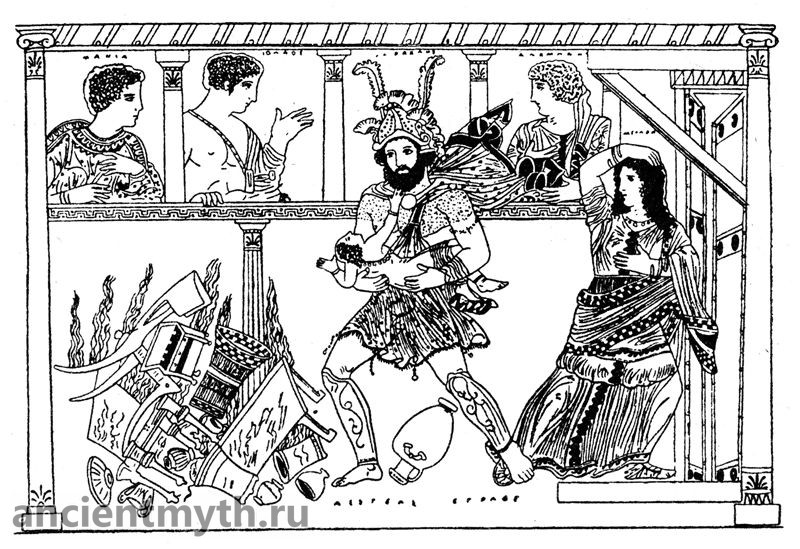Hercules in Thebes
Grew up in the forests of Kiferon Hercules and became a mighty young man. He was a full head taller than everyone else, and his strength far surpassed that of a man. At first glance, one could recognize in him the son of Zeus, especially by his eyes, which shone with some extraordinary, divine light. No one was equal to Hercules in dexterity in military exercises, and he wielded the bow and spear so skillfully that he never missed. As a young man, Hercules killed the formidable Cytheron lion, who lived on the peaks of the mountains. Young Hercules attacked him, killed him and skinned him. This skin he put on himself, threw it like a cloak over his mighty shoulders, With his paws he tied it on his chest, and the skin from the lion's head served him as a helmet. Hercules made himself a huge club from an ash tree, hard as iron, torn out by him from the roots in the Nemean grove. The sword was presented to Hercules by Hermes, the bow and arrows - Apollo, the golden shell made him Hephaestus, and Athena herself wove clothes for him.

To the right of Hercules, Megara is running away in terror, above her is Alcmene.
In the left corner is the goddess of madness Mania, next to her is Iolai.
(Drawing on a vase)
Having matured, Hercules defeated King Orchomenus Ergin, to whom Thebes paid a large tribute annually. He killed Erginus during the battle, and imposed a tribute on the Minian Orchomenus, which was twice as much as that paid by Thebes. For this feat, the King of Thebes Creon gave his daughter to Hercules in marriage Megara, and the gods sent him three beautiful sons.
Hercules lived happily in sevenfold Thebes. But the great goddess Hera was still burning with hatred for the son of Zeus. She sent a terrible disease on Hercules. The great hero lost his mind, madness seized him. In a fit of rage, Hercules killed all his children and the children of his brother Iphicles. When the fit passed, a deep sorrow seized Hercules. Having cleansed himself of the filth of his involuntary murder, Hercules left Thebes and went to the sacred Delphi to ask God Apollo what he should do. Apollo commanded Hercules to go to the homeland of his ancestors in Tiryns and serve for twelve years Eurystheus. Through the mouth of the pythia son Latony predicted to Hercules that he would receive immortality if he performed twelve great feats at the behest of Eurystheus.